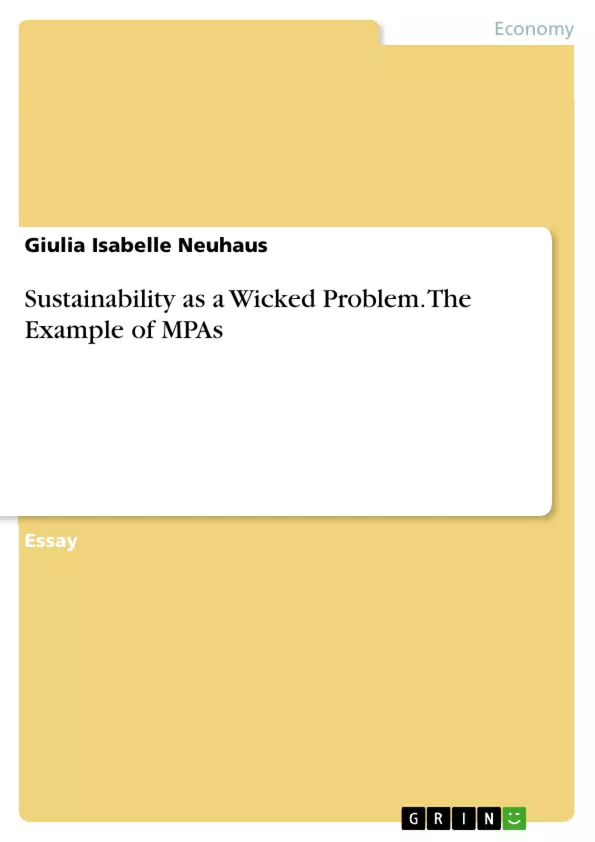This essay will critically analyse the notion of sustainability as a wicked problem by showing the congruencies between both concepts and examine the implications of wickedness on sustainability policies. It focuses on the applicability of participatory methods to address and manage its challenges, since they have been identified as a dominant approach in sustainability policy making in the literature.
Issues such as global warming, climate change, biodiversity loss, ocean acidification, and increasing poverty are just a few of many other problems we are currently facing. Dooming projections about the future has inflamed the discourse on sustainability and resulted in ongoing debates and commentaries about its definition across varying disciplines, each elaborating different perspectives of the concept. Due to its complexity it has been argued that achieving sustainability represents a ‘wicked problem’, a term describing problems that are impossible to be solved, but can only tamed (Rittel and Webber, 1973). Some even argue, that significant sustainability issues are beyond the scope of wicked problems and distinguish these as ‘super wicked problems’.
Inhaltsverzeichnis (Table of Contents)
- Introduction
- The Notion of Wicked Problems
- Sustainability as a Wicked Problem
- Indefinable and Non-Generalizable
- Ambiguously Bounded
- Temporally Exacting
- Repercussive
- Doubly Hermeneutic
- Morally Consequential
- The Implications of Wickedness on Sustainability Policy-Making
- Concluding Words
Zielsetzung und Themenschwerpunkte (Objectives and Key Themes)
This essay critically analyses the concept of sustainability as a wicked problem, exploring the congruencies between the two concepts and examining the implications of wickedness on sustainability policies. It focuses on the applicability of participatory methods to address and manage sustainability challenges, as these methods have been identified as a dominant approach in sustainability policy-making within the literature.
- The characteristics of wicked problems and their application to the concept of sustainability
- The implications of wickedness on sustainability policy-making
- The potential of participatory methods for addressing sustainability challenges
- The complexity of defining and achieving sustainability
- The dynamic and evolving nature of sustainability problems
Zusammenfassung der Kapitel (Chapter Summaries)
The introductory chapter discusses the challenges of sustainability in the context of global issues such as climate change and biodiversity loss. It establishes the notion of sustainability as a wicked problem and introduces the main focus of the essay.
Chapter two explores the concept of wicked problems as developed by Rittel and Webber, highlighting their key characteristics. It examines the implications of these characteristics for addressing social problems and contrasts them with 'tame problems' that can be addressed through analytical methods.
Chapter three delves into the concept of sustainability as a wicked problem, presenting evidence for its characteristics. It examines how the inherent complexity of sustainability aligns with the principles of wicked problems, discussing specific examples such as its undefinable nature, ambiguous boundaries, temporal urgency, and moral implications.
Schlüsselwörter (Keywords)
This essay explores the complex relationship between sustainability, wicked problems, and participatory methods in policy-making. Key terms include sustainability, wicked problems, participatory methods, policy-making, environmental challenges, social issues, and complex systems.
- Arbeit zitieren
- Giulia Isabelle Neuhaus (Autor:in), 2019, Sustainability as a Wicked Problem. The Example of MPAs, München, GRIN Verlag, https://www.grin.com/document/991971




